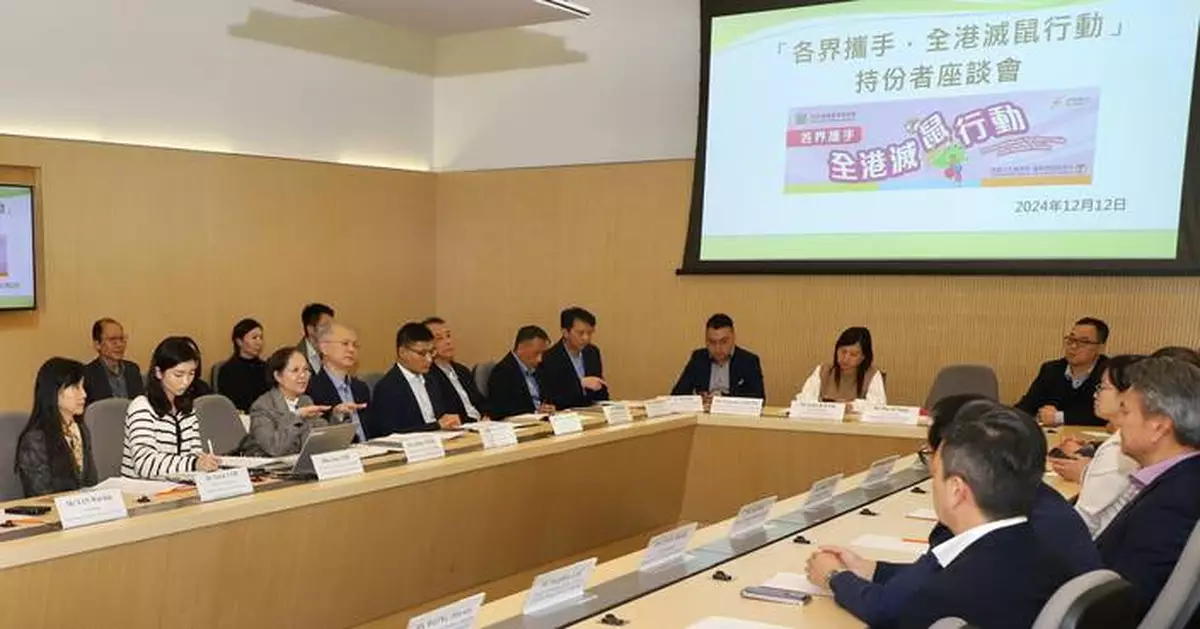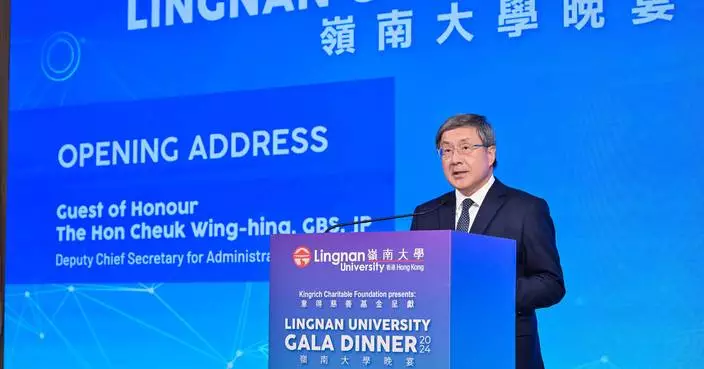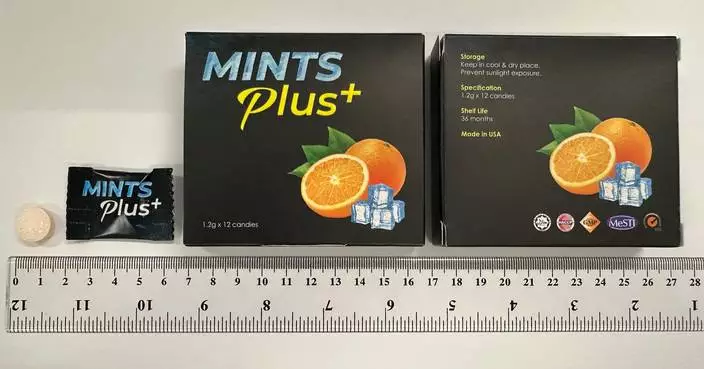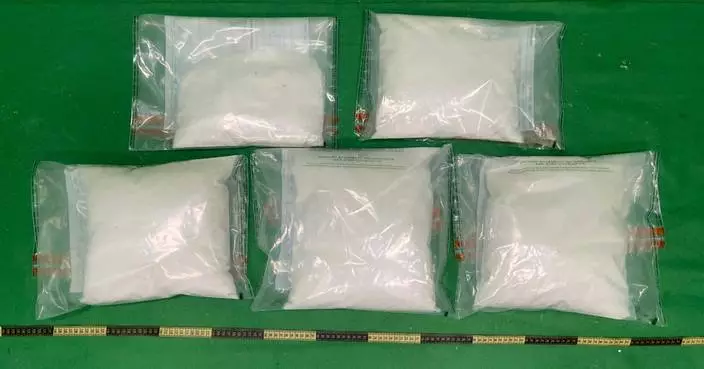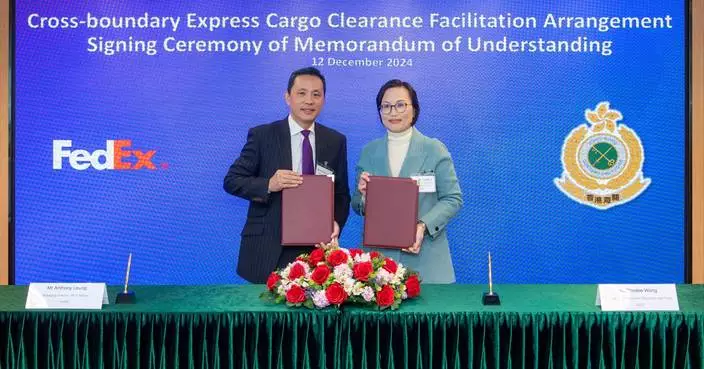EEB meets trade representatives on launch of Anti-rodent Charter
The Environment and Ecology Bureau (EEB) today (December 12) met trade representatives of the Cross-sectoral Territory-wide Anti-rodent Action to introduce the Anti-rodent Charter for residential premises and related commercial units to be launched by the Food and Environmental Hygiene Department (FEHD). The Charter aims to raise awareness on maintaining environmental hygiene and cultivate good habits among residents to create a rodent-free environment.
Successful prevention and control of rodents relies on the concerted efforts and active participation of stakeholders from various sectors, including pest control operators in both public and private sectors, venue management, and the general public. It is essential to implement good hygienic practices complemented by effective rodent prevention measures, as well as to eliminate the three fundamental survival conditions of rodents in the environment, namely food, harbourage and passages, i.e. the elimination of the food sources and hiding places of rodents, as well as blockage of their dispersal routes to achieve sustainable anti-rodent effect and prevent the reproduction of rodents.
At the meeting with the EEB and the FEHD earlier, the property management sector agreed to strengthen co-operation with the Government to further promote rodent prevention and control in private residential buildings with property management and related commercial units, and to participate in the first phase of the Charter. Starting from December 31, 2024, the FEHD will invite property management companies, owners' corporations, residents' organisations of private residential premises, the Hong Kong Housing Society (HKHS), transitional housing, subsidised sale flats and Tenants Purchase Scheme estates to sign the Charter. Premises participating in the Charter will commit to assigning anti-rodent liaison ambassadors to co-ordinate anti-rodent efforts in their premises. Ambassadors also need to carry out regular inspections and arrange necessary repairs and maintenance works of facilities, and ensure suitable cleaning and refuse removal of the housing estates or buildings. Besides implementing anti-rodent measures, participants have to supervise the quality and performance of the hired anti-rodent service contractors and maintain relevant records of anti-rodent work. They are also responsible for conveying anti-rodent messages to residents through promotion and education, encouraging residents to improve environmental conditions and cultivate good habits in personal hygiene and maintaining a clean environment.
Participants will be provided with free anti-rodent technical support from the FEHD, including invitations to attend pest control seminars organised by the FEHD. In addition, the FEHD will present Charter certificates and stickers to the participants and publish a list of participating organisations and premises on a dedicated webpage to affirm their efforts.
At the meeting, representatives from different sectors (including the pest control sector, markets, licensed hawkers, catering and construction) were briefed by the Government on the details of the Charter for private residential premises and related commercial units. They indicated that they would share the relevant information with their stakeholders. The property management sector said that they would assist in publicising the Charter among property management companies, owners' corporations and residents' organisations, with a view to raising residents' awareness of maintaining environmental hygiene, cultivating good habits, and working together in rodent control to create a more livable environment. Depending on the experience gained from the first phase launched on December 31, 2024, the Government will consider extending the Charter to other sectors in due course.
Regarding mosquito infestation, given that Hong Kong has recorded more than 150 imported and five local dengue fever (DF) cases this year, the Centre for Health Protection (CHP) of the Department of Health gave an update on the latest situation of DF and the CHP's risk assessment. The FEHD also reported on the targeted mosquito control operations carried out in the past two weeks in response to a local case. The FEHD and relevant departments have intensified mosquito control work in the residence, workplace and locations visited by the patient during the incubation period and after illness onset. These efforts include:
At the meeting, the FEHD urged the attendees to actively implement anti-mosquito measures and carry out intensive mosquito control operations in areas under their purview to reduce the risk of DF transmission.
The Cross-sectoral Territory-wide Anti-rodent Action has been introduced since the end of 2022 to consolidate strengths from the Government and various sectors of the community for a cross-sectoral, multidisciplinary, and community-wide approach to anti-rodent work. Whilevarious sectors and government departments are consolidating the rodent control work, the public is encouraged to actively collaborate in rodent prevention and control actions by eliminating the food, harbourage and passages of rodents.
The meeting was chaired by the Under Secretary for Environment and Ecology, Miss Diane Wong. Participants of the meeting came from 15 organisations or institutions, namely the HKHS, Link, People's Place, the Hong Kong Property Services Alliance, the Hong Kong Association of Property Management Companies, the Federation of Hong Kong Property Management Industry, the Hong Kong Association of Property Services Agents, the Pest Control Personnel Association of Hong Kong, the Hong Kong Pest Management Association, the Federation of Hong Kong, Kowloon, New Territories Hawker Associations, the Association of Restaurant Managers, the Hong Kong Construction Association and the Hong Kong General Building Contractors Association.
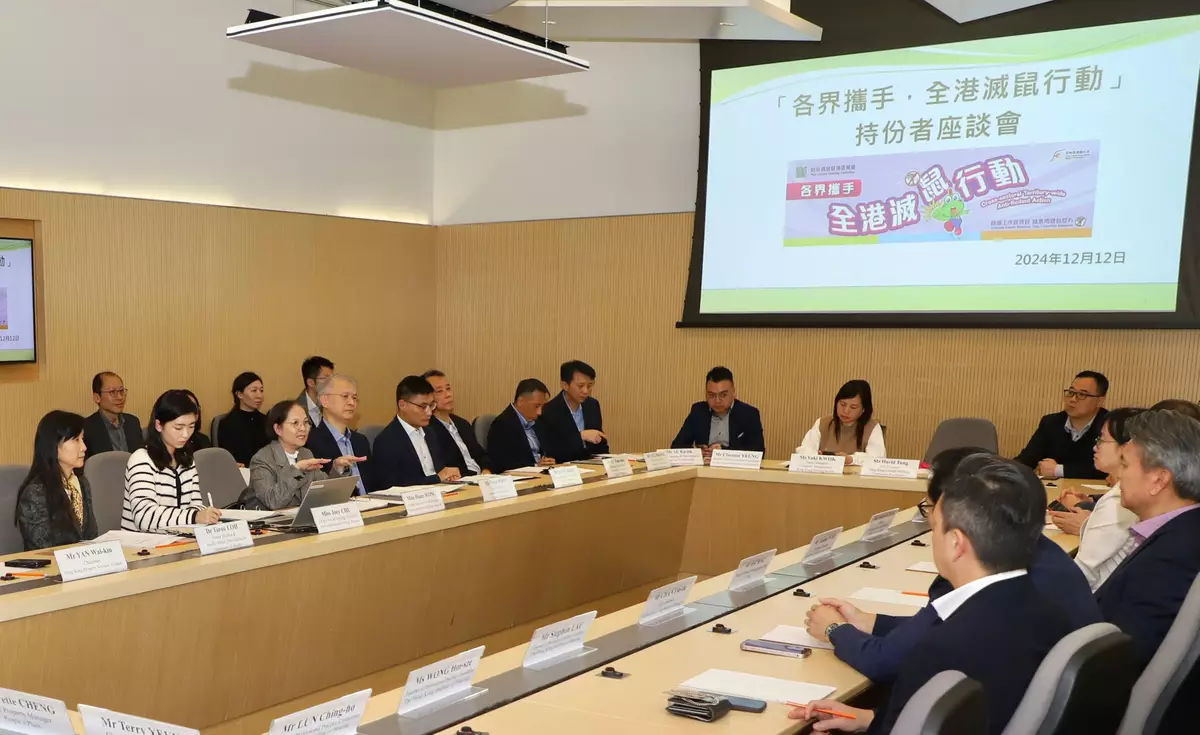
EEB meets trade representatives on launch of Anti-rodent Charter Source: HKSAR Government Press Releases


